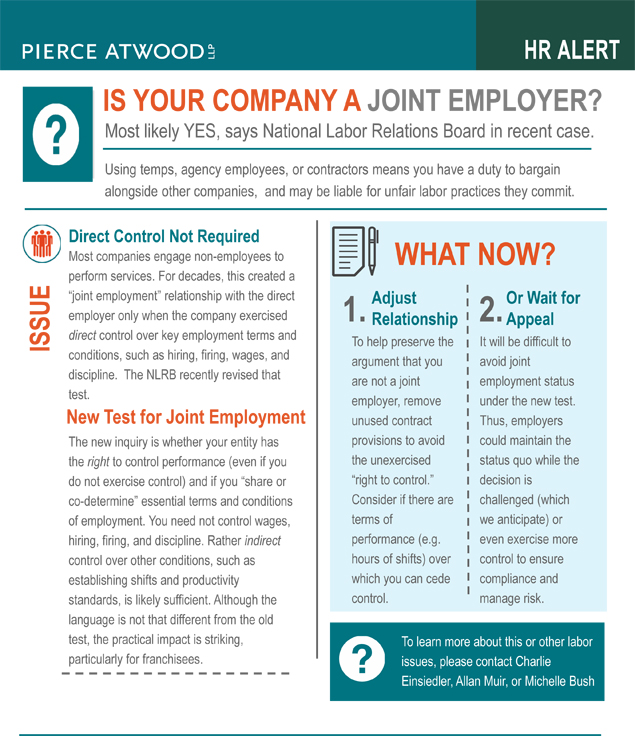Is Your Company a Joint Employer?
Is Your Company a Joint Employer? Most likely YES, says National Labor Relations Board in a Recent Case
Using temps, agency employees, or contractors means you have a duty to bargain alongside other companies, and may be liable for unfair labor practices they commit.
Direct Control Not Required
Most companies engage non-employees to perform services. For decades, this created a “joint employment” relationship with the direct employer only when the company exercised direct control over key employment terms and conditions, such as hiring, firing, wages, and discipline. The NLRB recently revised that test.
New Test for Joint Employment
The new inquiry is whether your entity has the right to control performance (even if you do not exercise control) and if you “share or co-determine” essential terms and conditions of employment. You need not control wages, hiring, firing, and discipline. Rather indirect control over other conditions, such as establishing shifts and productivity standards, is likely sufficient. Although the language is not that different from the old test, the practical impact is striking, particularly for franchisees.
What now? Adjust Relationship or Wait for Appeal?
To help preserve the argument that you are not a joint employer, remove unused contract provisions to avoid the unexercised “right to control.” Consider if there are terms of performance (e.g. hours of shifts) over which you can cede control.
It will be difficult to avoid joint employment status under the new test. Thus, employers could maintain the status quo while the decision is challenged (which we anticipate) or even exercise more control to ensure compliance and manage risk.

